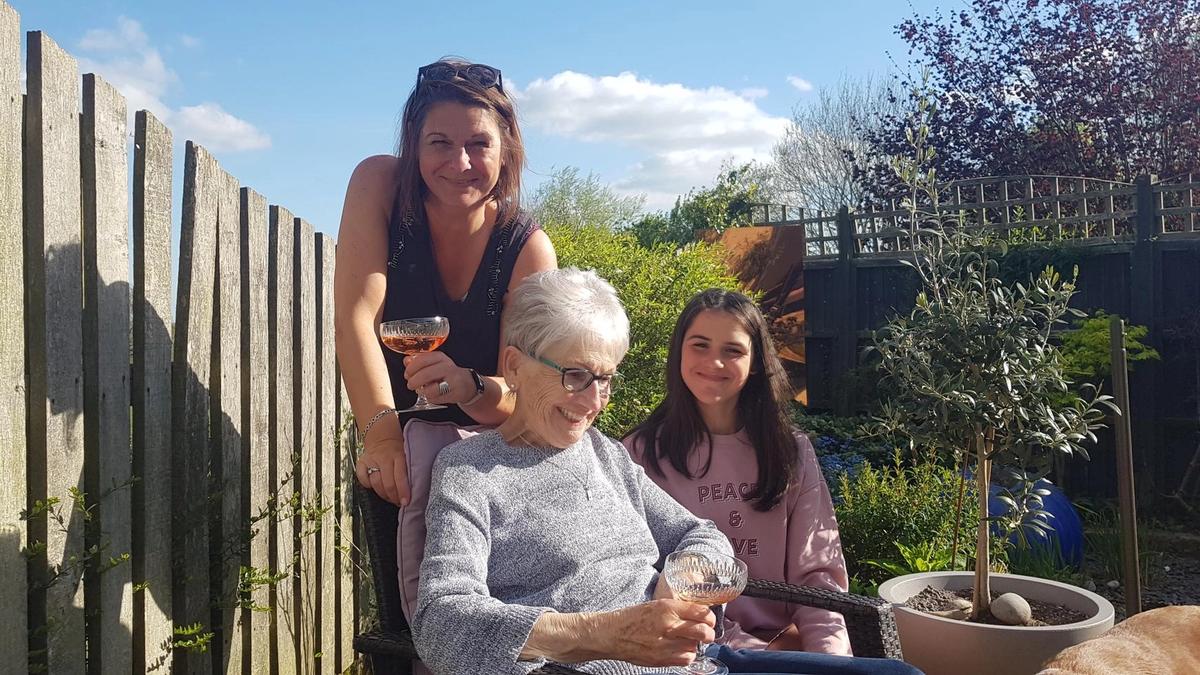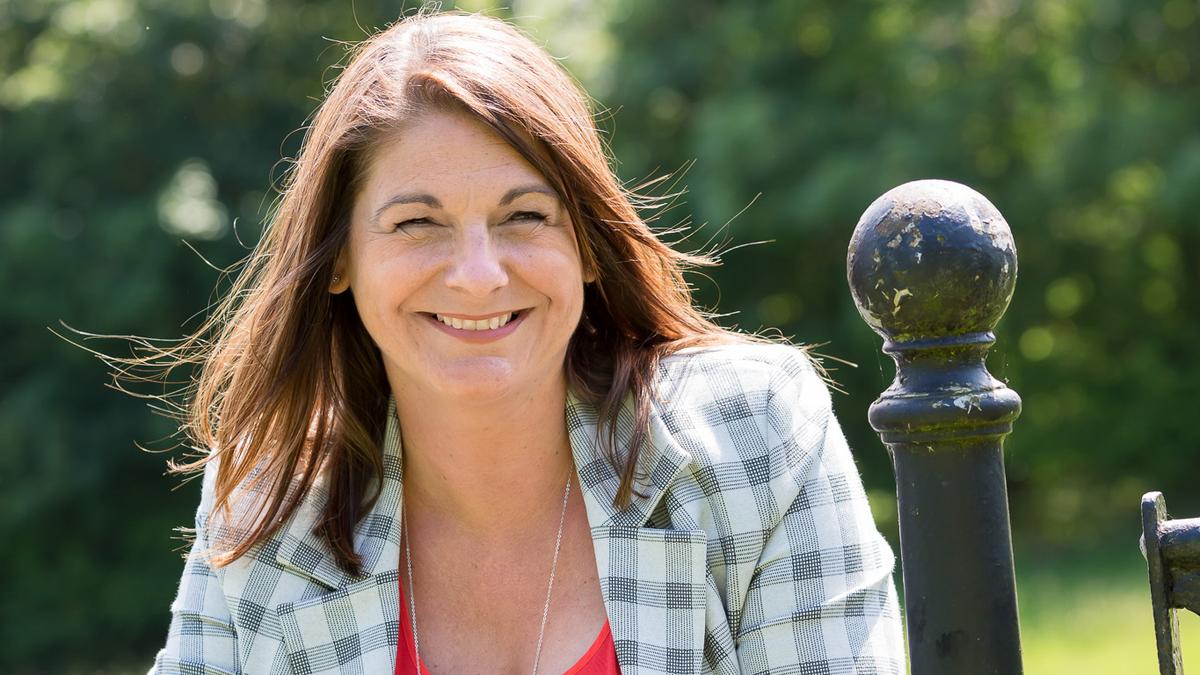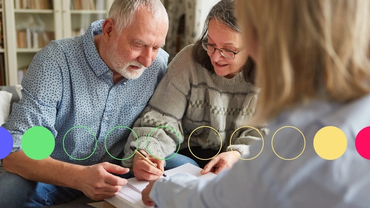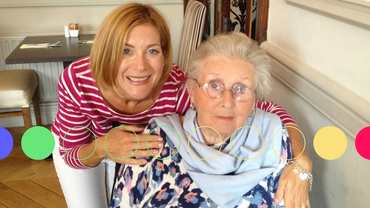'I am the filling in the sandwich generation - it's a juggle'
20 Sep, 2022
By Steph Smith
Financial advisor Steph Smith, 54, from Leicestershire, first discovered what it meant to be part of the sandwich generation when her father was diagnosed with cancer. Here Steph – who is married to Jay and has a daughter Freya - explains how she juggles caring responsibilities across the generations.

Steph cares for her mother Pam and her nine-year-old daughter Freya.
The term ‘sandwich generation’ wasn’t one I was familiar with until a few years ago when I became part of it.
But the full implications of the term weren’t something that became apparent overnight. It was more of a slow and creeping realisation that life had changed and a new additional set of responsibilities and challenges were part of life.
When my father Brian was diagnosed with terminal pancreatic cancer in 2016 at the age of 82 his decline was rapid. I juggled emotional, physical and financial support for both my parents who lived 140 miles away with running my own financial advice business and also raising my daughter Freya.
When I look back I realise how stressful that initial period was as I gave a mix of emotional, practical and physical support to my mum both during and after my father’s death, just 10 months after he was diagnosed.
Caring up - and caring down
Now five years on, my 84-year-old mother Pam’s increasing frailty presents another set of ‘sandwich’ challenges as we deal with her needs and those of a teenager as well.
After my father died Mum had several health issues of her own, which means accompanying her to hospital visits and doctor appointments. Although it wasn’t an easy decision, Mum recently moved to live closer to me, which has reduced my ‘care commute’ to minutes rather than hours.
She feels safer knowing we are on hand if there’s an emergency and we can support her with the practical things that become harder later in life, from putting the bins out to occasionally opening her Prosecco!
It also means I can be much more present for Freya and what’s going on in her busy life. It’s so important for me to be able to support her emotionally during her teenage years. And now I can do that, and be there for Mum too.

Steph runs her own business as well as looking after her family.
Distance caring is challenging
Caring both up (for your parents) and caring down (for your children) isn’t new of course and in many cultures cross-generational caring is the norm.
Here in the UK the older generation are not always local making the whole thing more challenging. They may be living alone or increasingly needing more assistance with everyday tasks which you can’t help with at a distance.
Add to that that fact that women are more likely to live longer - and potentially alone - than men and the question of caring, and the associated costs, become ever more more vexing.
In my case, although my father was diagnosed with a terminal illness we, as a family, had a few months to discuss and make arrangements so I was fully aware of my parents’ circumstances and could help Mum.
Although very independent (she lives on her own) and still fully cognitive, she is not from a generation that is necessarily comfortable with online banking, bill-paying and these were certainly tasks that Dad handled.
So I have taken on a whole range of additional responsibilities to support Mum, from overseeing the household finances to managing the sale of her home and orchestrating her house move during Covid.
All of this takes time and focus which often means a compromise somewhere else in life.
Although I wouldn’t have it any other way, I have found myself spread thinly as the ‘filling’ in the generation sandwich providing emotional and physical support to both my Mum and my daughter.
Whilst I am still juggling things there are positives - it is from home rather than long distance and it has given Freya a different perspective on what it means to be a daughter and how that role can change at different stages through life.
My advice to anyone who finds themselves in a similar position is to do your best to make sure that you have time for yourself and the things in life you like to do. It helps that I have a supportive partner.
I make spending time with good friends a priority. I enjoy long walks with my hubby and dog where I can decompress and exercise at the same time. And a decent glass of wine helps too!
Stephanie Smith is an associate partner at St James’s Place



